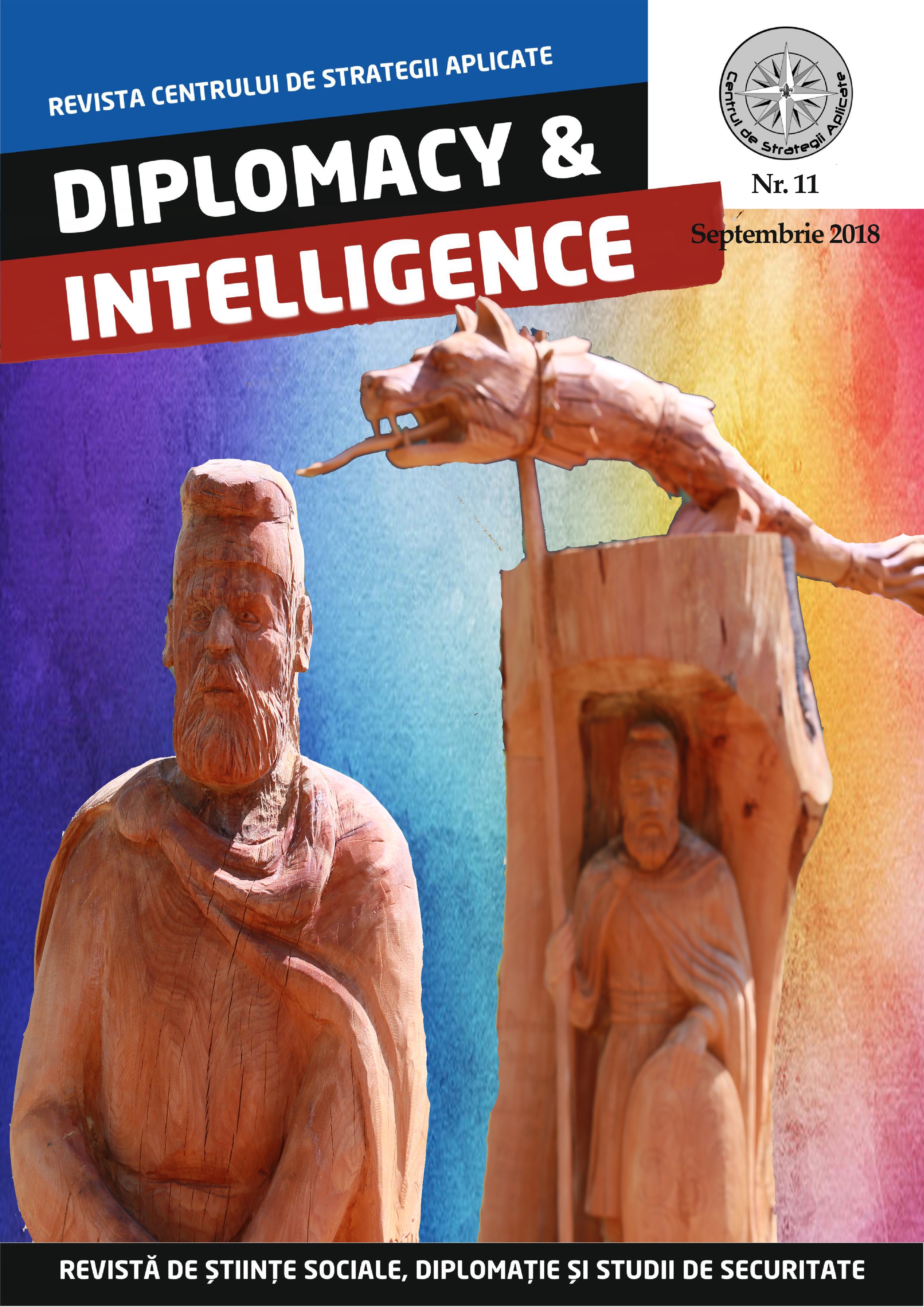Rolul și importanța intelligence-ului în diplomație
The role and importance of intelligence in diplomacy
Author(s): Delia LenghelSubject(s): Politics / Political Sciences, History, Social Sciences, Law, Constitution, Jurisprudence
Published by: Centrul de Strategii Aplicate
Keywords: human; intelligence; diplomatic; security; reconceptualization; international context
Summary/Abstract: We can state that today's military power has lost the traditional importance in international politics. So the question that needs to be asked regards the need of re-examination of the way in which national security is conceived. The first justification would be that after 1990 the circumstances have changed, the second resulting from the the collective failure of the schools of international relations to anticipate the final moment of this war. If we take into account only these considerations we can conclude that the problem of the need of a new perspective and a wider uptake of national security becomes progressively stronger. The reconceptualization of national security framed in an international context resulted in the possibility of broadening the concept of security by including in it the threat that belongs to non-military areas, and on the other hand the possibility of deepening the concept of security, whose ,,subject and object of reference is no longer the state, but the human”. If ‘knowledge is power’ it can also be deduced that intelligence is a form of power itself. Intelligence can be a powerful tool for public diplomacy. It adds an element of objectivity to a government’s public appeals, legitimizing its decisions by evidence rather than by ideology or instinct. One of the most enduring definitions of intelligence is that it is a special form of information that allows policy makers, or operational commanders, to make more effective decisions. Intelligence agencies themselves have frequently advanced the claim that their ability to lend a general transparency to the international system improves stability. Also, these agencies not only gather intelligence on world affairs but also seek to intervene covertly to change the course of events. Another controversial aspect of intelligence involves the cooperation between intelligence and security services. In the post Cold War era, two major trends illustrate the evolution of the international security environment: the spread of democracies and the emergence of asymmetric threats. The former focuses on freedom, the latter on security. New democracies must pay close attention to fundamental values and norms that stand at their core, such as respect for human rights and civil liberties, rule of law, and civilian and democratic control. At the same time, they need effective and efficient intelligence to fight the new threats.
Journal: Diplomacy & Intelligence / Revistă de Științe Sociale, Diplomație și Studii de Securitate
- Issue Year: 2018
- Issue No: 11
- Page Range: 53-63
- Page Count: 11
- Language: Romanian

